Carissa Pinkston worked for Elite Models until quite recently, when some severely transmisogynistic social media posts from her past came back to haunt her in a big way.
*The following article contains examples and discussion of transphobia and transmisogyny.*
Instead of attempting to make amends for the comments, Pinkston chose the more dramatic and damaging route:
she claimed that she was, herself, a trans woman and that the posts were a reflection of her internal conflict and transphobia.
She shared on social media:
"I wasn't ready to come out about it yet but today I got fired and I've been receiving hate mail and death threats ever since so I'm being forced to tell the truth."
"I'm Transgender. I transitioned at a very young age and I've lived my Life as a Female ever since. It's been very hard to keep this secret but what I said about Trans-Women is a direct reflection of my inner insecurities and I have since come to realize that I am a Woman...WE ALL ARE!"
While opressed folks internalizing that oppression and taking a while to come to terms with it is certainly not uncommon, it isn't an excuse. It doesn't remove the person's responsibility for their own actions, and their accountability when those actions have consequences.
You can see screenshots of Pinkston's problematic posts in the tweet below, courtesy of @itsamekyana:
After Carissa "came out," people who worked with her or knew her well started commenting on her posts, asking why she was lying to so many people.
Aleece Wilson, who also works for Elite Models and goes by the screen name @oddfreckles on Instagram, posted:
"Its terrible and disgusting that you are lying to thousands of people .... that clout sh*t is sad."
Aaron Phillip, a Black, transgender, disabled model who also works for Elite Models, also talked about the issue on Twitter. She was incredulous that Pinkston would claim to be transgender just to further her career.
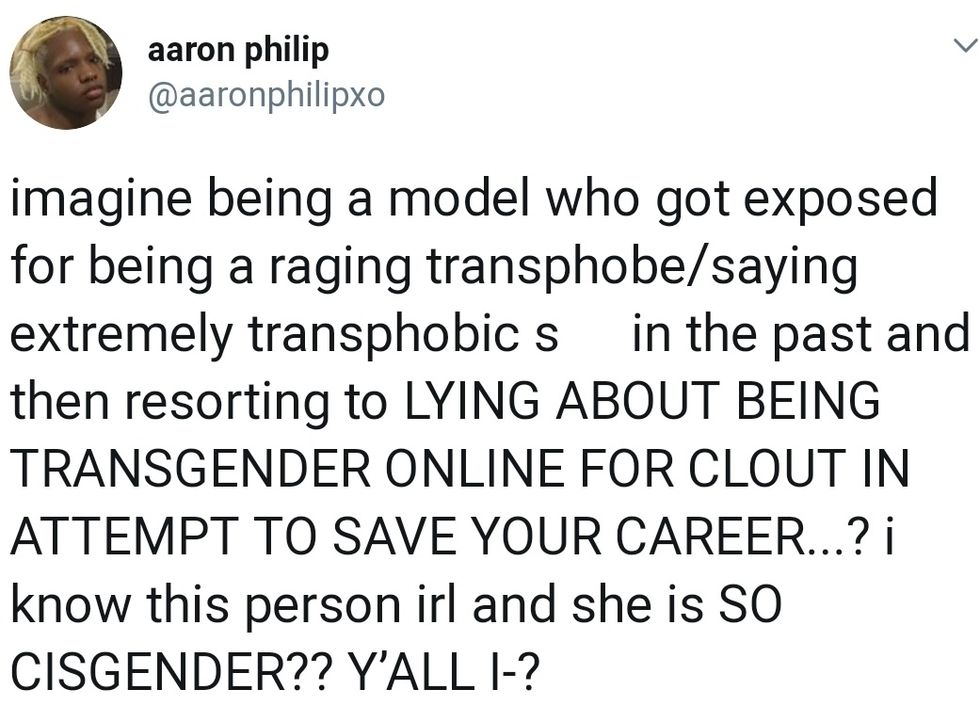
The reaction of many other internet denizens was nearly as dubious of Pinkston's motives.
After being caught in the lie and publicly called out, Pinkston posted an apology on Instagram, which she has since removed.
"I apologize for any Transphobic remark I've ever made against the Trans Community. I panicked and I thought if I came out as Trans that I could somehow make things better for myself but it appears I've only made things worse."
"I'm truly sorry. I'm only 20 and I'm human. I make mistakes but I refuse to let them define me."
The sincerity of Pinkston's apology was also called into question.
She went on to post a few more photos with captions talking about how her friend, who is trans, won't talk to her anymore. She never acknowledges that this might be due to her own behavior.
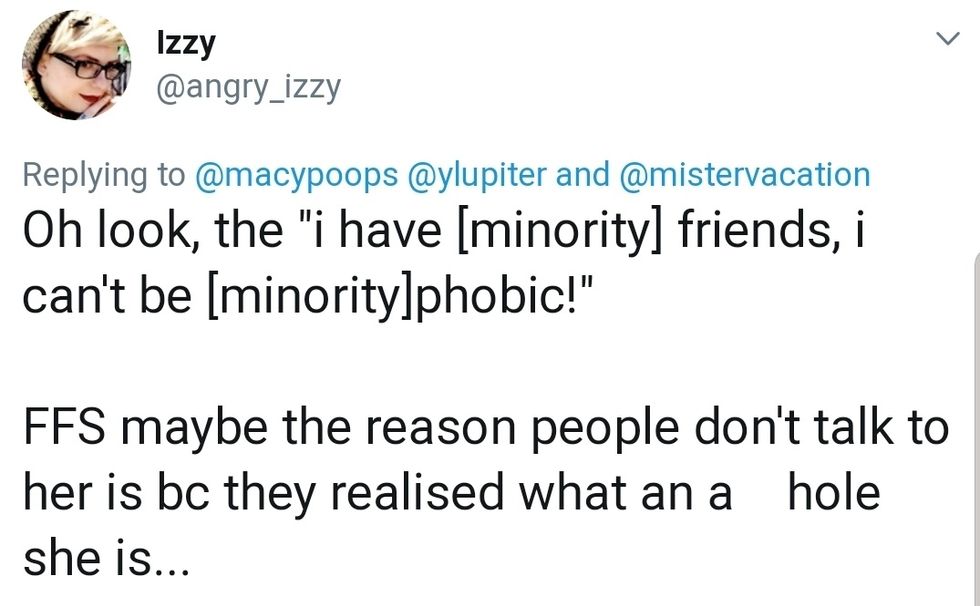
She also asked for trans folks to message her if they wanted to "help educate" her, in a very backhanded way, instead of seeking out that information herself through any number of appropriate resources where people get paid to educate the ignorant.
Asking for free emotional labor from an oppressed community that you have just wronged is really not the best way for someone to educate themselves.
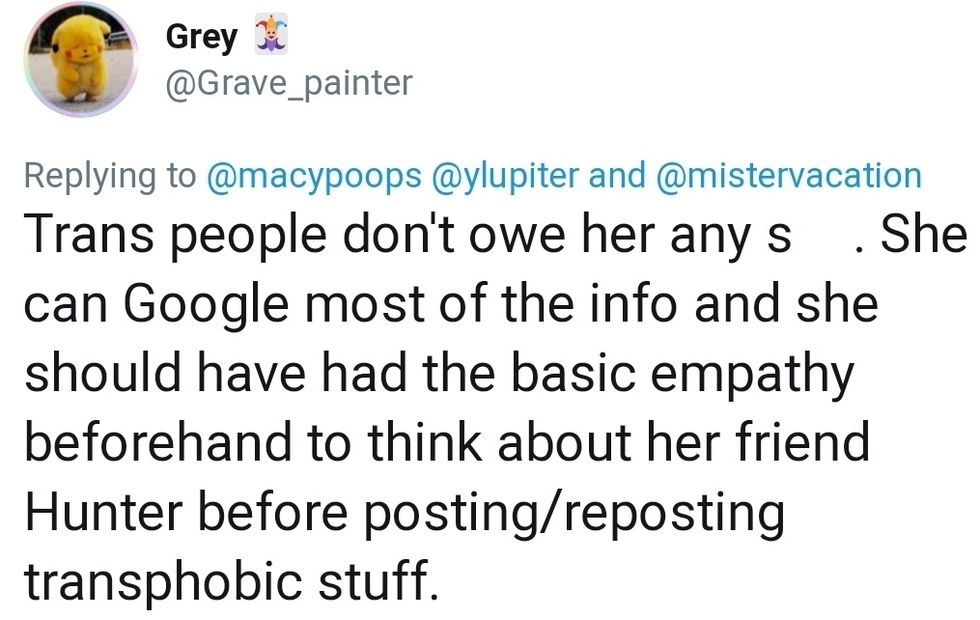
It is easy for someone to cause unintentional hurt when they are uneducated or don't understand something. Their not knowing doesn't erase the hurt they caused, however, and doubling down like this only makes the situation, and the hurt, worse for everyone involved.
The simplest thing to do is apologize without disclaimers or excuses, mean it, and change the behavior in the future to prove the sincerity of that apology.
Does that mean there will be no consequences and everyone goes on their merry way?
No. Actions still have consequences, and things people say and do affect their personal and professional lives.
The only way to move towards healing and understanding is for a person to face their mistake, acknowledge it and it's consequences, and work to better themselves in the future.
If you want to learn more, the book Traversing Gender: Understanding Transgender Realities is available here.
Topics include:
- Understanding the terms "trans" and "transgender"
- Differences (and crossovers) between sex, gender, and orientation
- The wide array and types of trans experiences
- Social networking and emotional support systems for trans people
- Navigating medical care, from the common cold to gender-specific procedures
- What "transitioning" looks like, from a variety of different approaches
- How legal systems interplay with gender and trans issues
- Extra challenges based on gender, race, class, age and disability
- Skills and information on being successful a trans ally

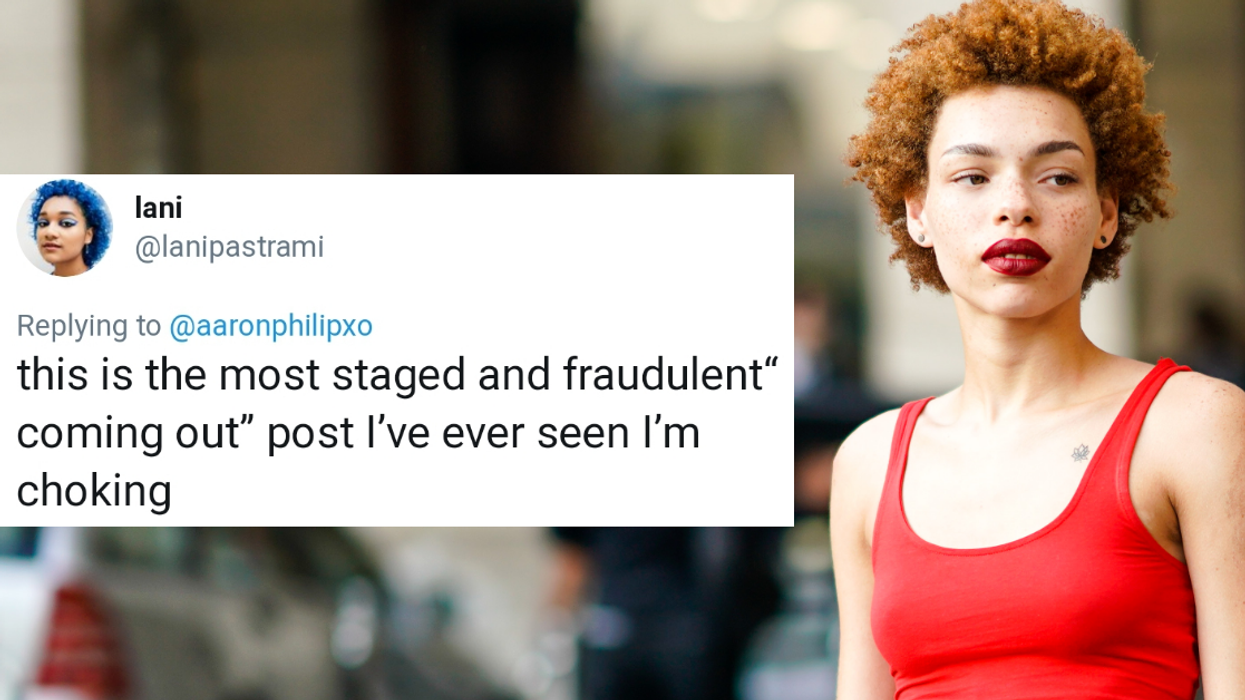







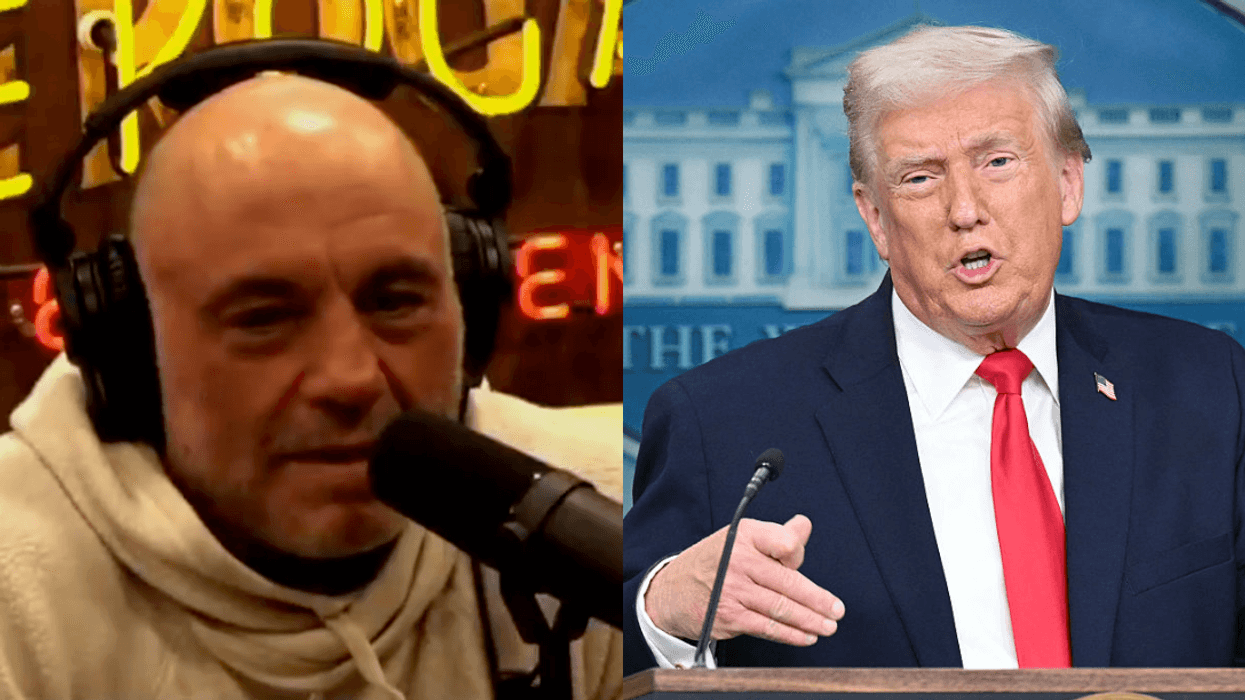




 Awkward Pena GIF by Luis Ricardo
Awkward Pena GIF by Luis Ricardo  Community Facebook GIF by Social Media Tools
Community Facebook GIF by Social Media Tools  Angry Good News GIF
Angry Good News GIF 
 Angry Cry Baby GIF by Maryanne Chisholm - MCArtist
Angry Cry Baby GIF by Maryanne Chisholm - MCArtist 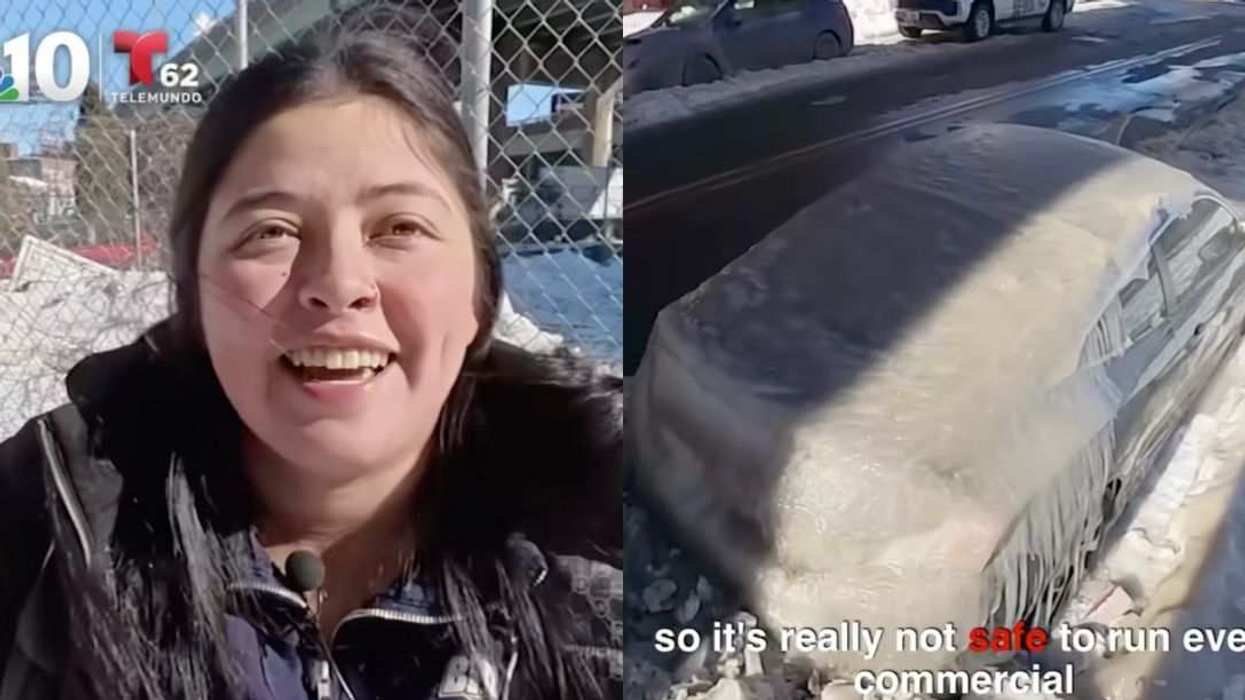
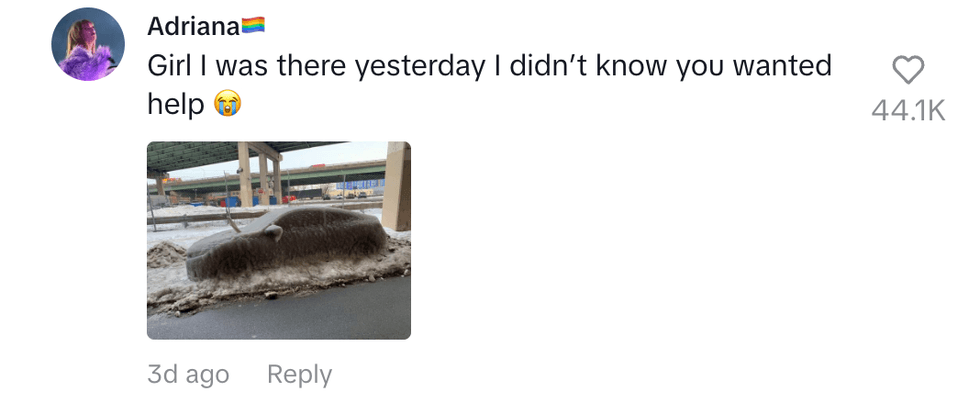 @adriana.kms/TikTok
@adriana.kms/TikTok @mossmouse/TikTok
@mossmouse/TikTok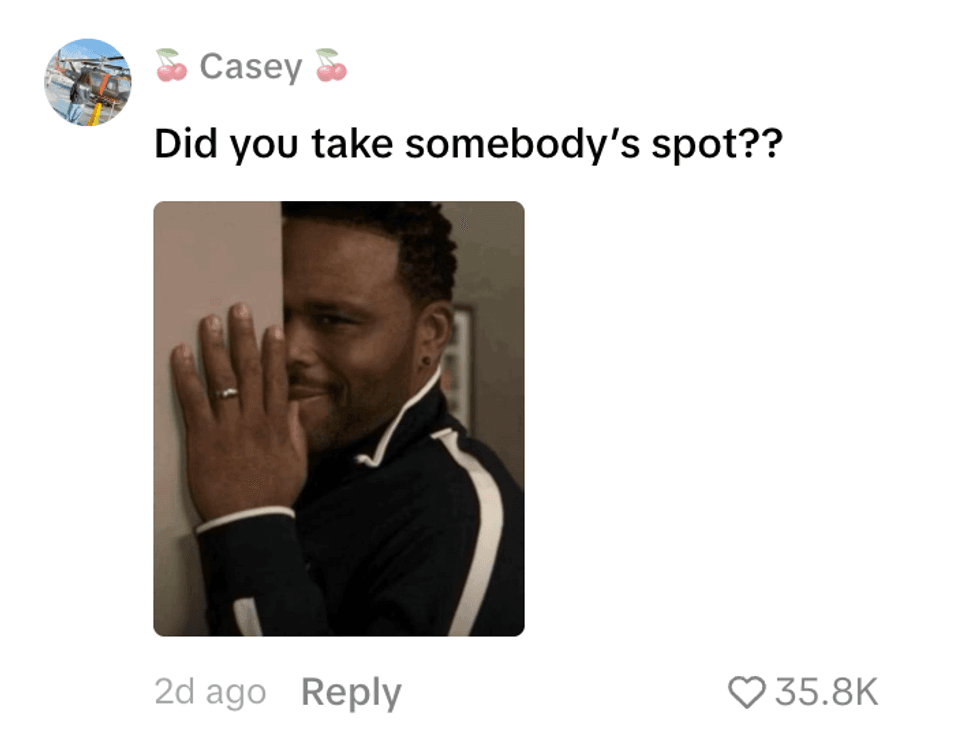 @im.key05/TikTok
@im.key05/TikTok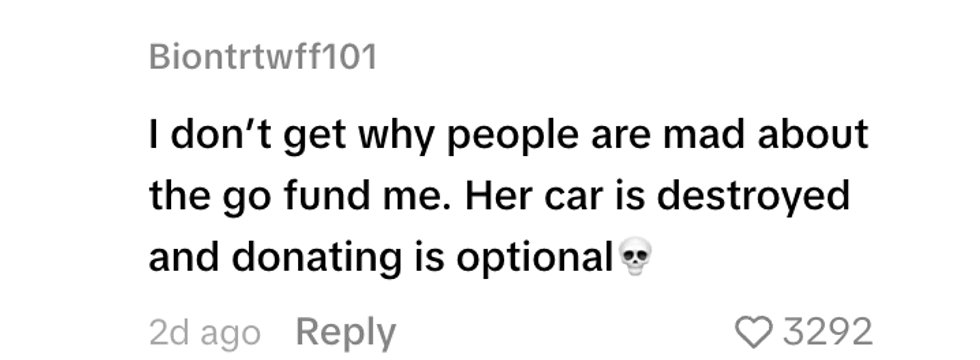 @biontrtwff101/TikTok
@biontrtwff101/TikTok @likebrifr/TikTok
@likebrifr/TikTok @itsashrashel/TikTok
@itsashrashel/TikTok @ur_not_natalie/TikTok
@ur_not_natalie/TikTok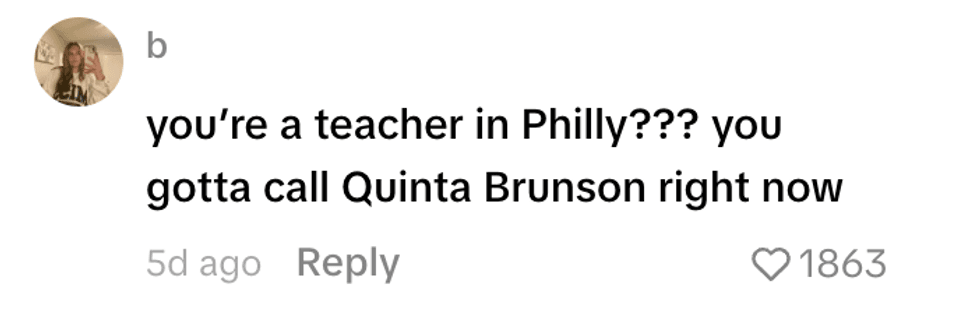 @rbaileyrobertson/TikTok
@rbaileyrobertson/TikTok @xo.promisenat20/TikTok
@xo.promisenat20/TikTok @weelittlelandonorris/TikTok
@weelittlelandonorris/TikTok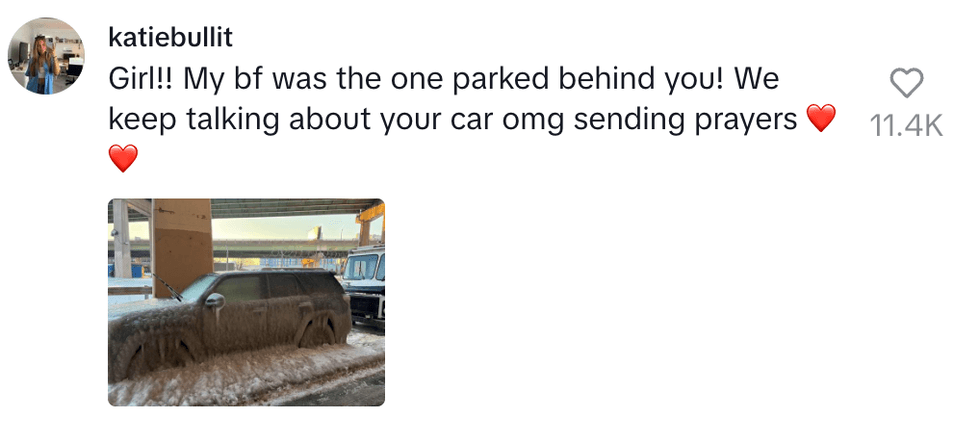 @katiebullit/TikTok
@katiebullit/TikTok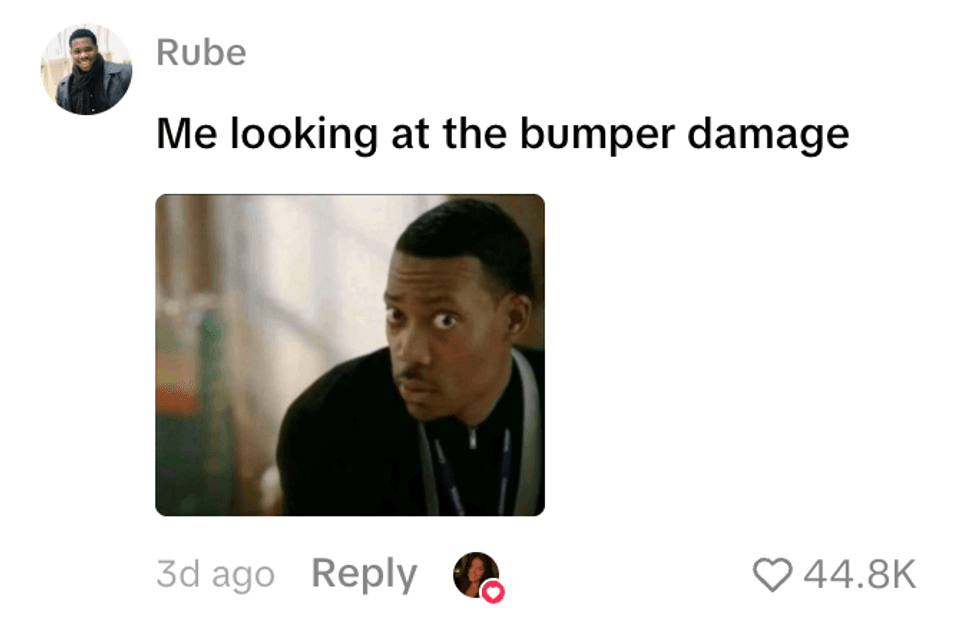 @rube59815/TikTok
@rube59815/TikTok
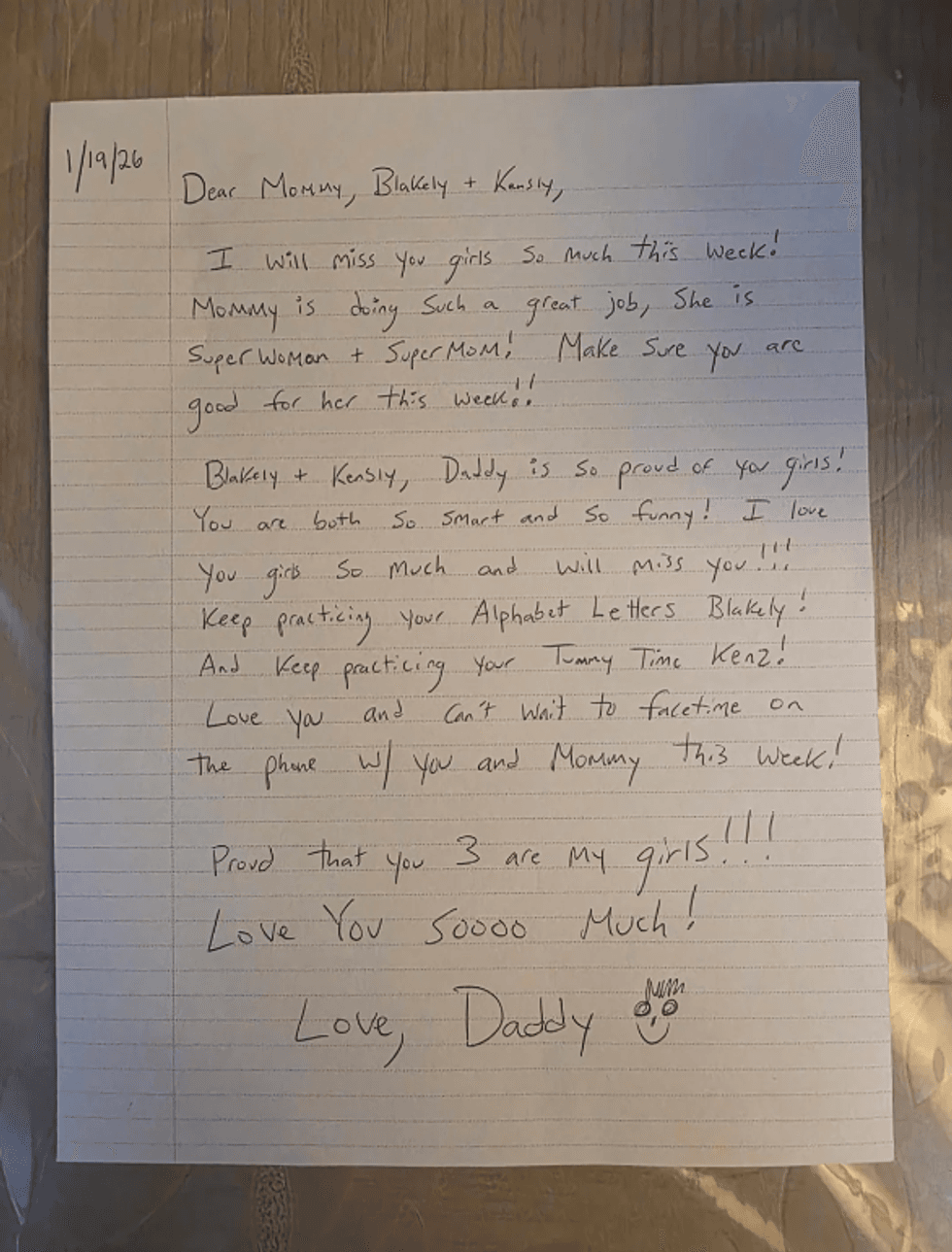 u/Fit_Bowl_7313/Reddit
u/Fit_Bowl_7313/Reddit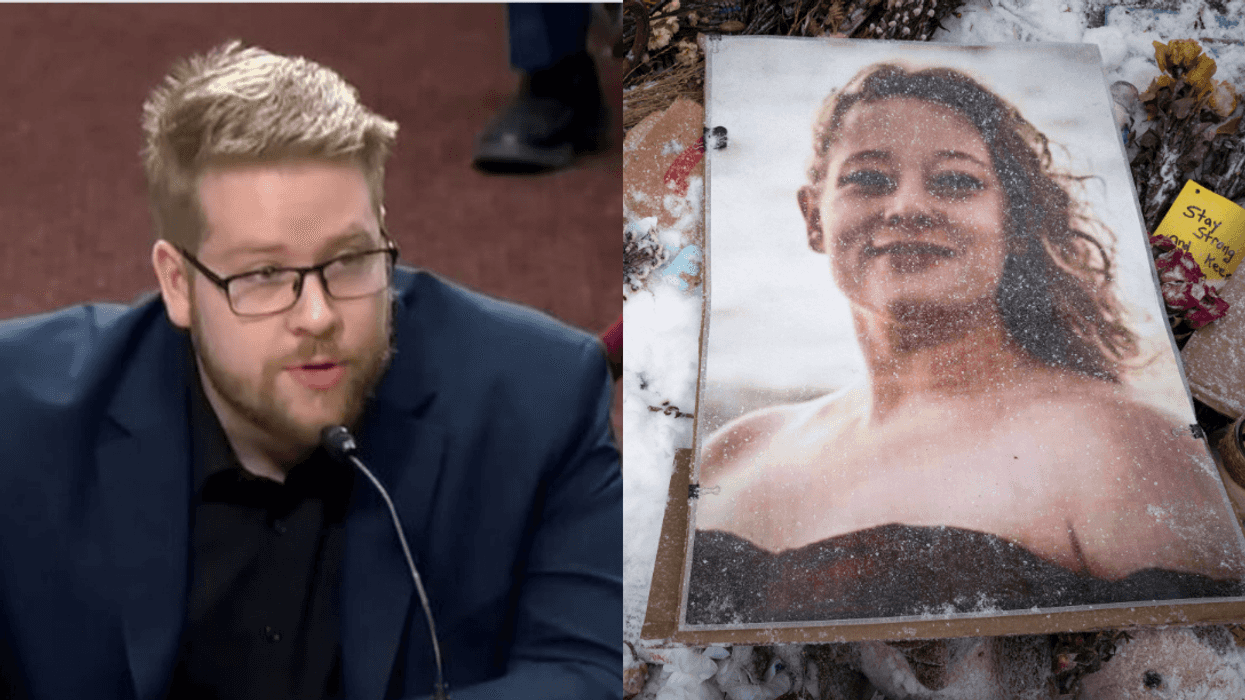
 @meteorblades/Bluesky
@meteorblades/Bluesky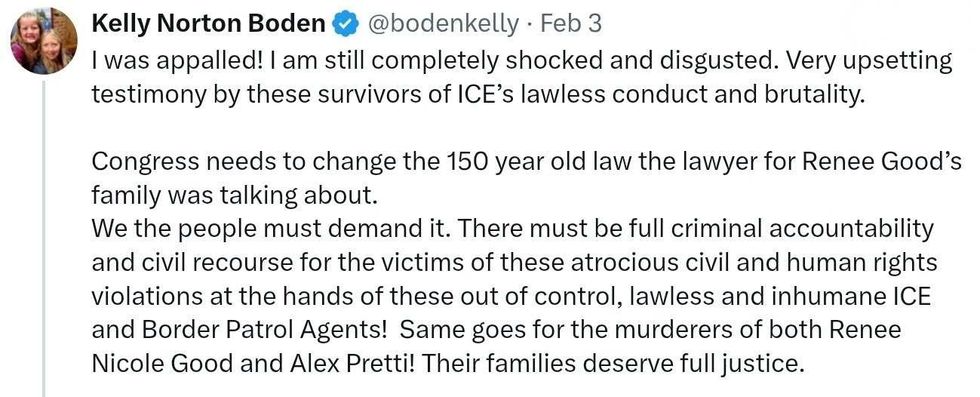 @bodenkelly/X
@bodenkelly/X